
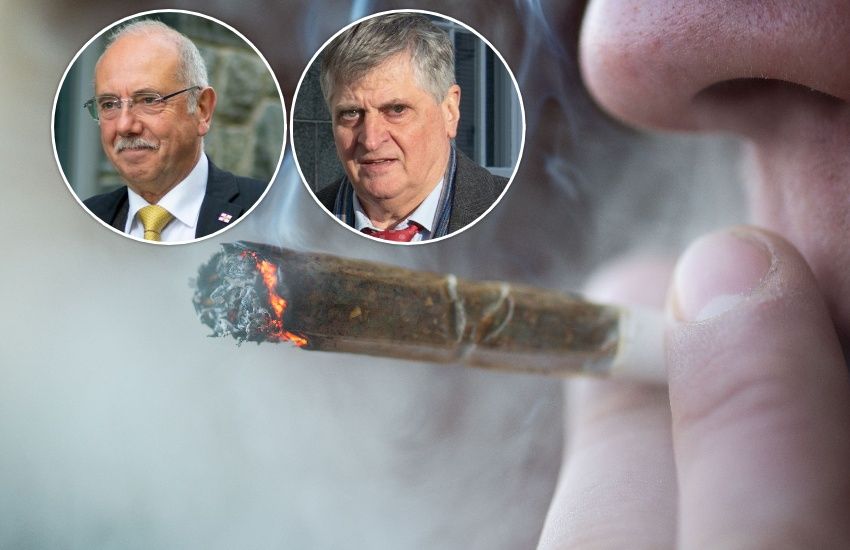

States' members have taken a big step towards reviewing whether cannabis should be legalised or decriminalised.
A proposal to include a review of the legal status of cannabis in the States' Work Plan from 2023 was supported by 20 votes to 14 in the Assembly late this afternoon.
The Committee for Health & Social Care has been given nine months to draw up the terms of reference and funding requirements for the review. And the Policy & Resources Committee has been directed to include those requirements in the next update of the States' Work Plan in the summer of 2023.
Opposition to the review was led by the Presidents of the two Committees which will be most closely involved with the work - Deputy Al Brouard at Health & Social Care and Deputy Rob Prow at Home Affairs.
But States' members backed the majority of the members of the Committee for Health & Social Care, who successfully requested their colleagues to throw out a review of public health laws agreed earlier this year and redirect resources to preparing for the review of cannabis laws instead.
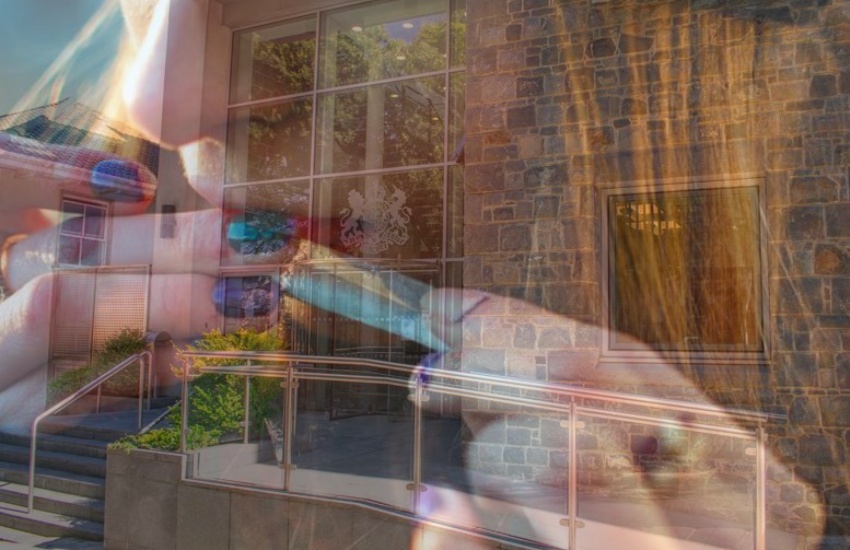
Pictured: Guernsey currently has among the toughest drugs laws in the western world, but now the States have decided to take the first steps on a review of the legal status of cannabis.
Earlier in the meeting, Deputy Andrew Taylor, a member of the Committee for Home Affairs, pulled out of proposing an amendment he had submitted which tried to delete the vote on a review of cannabis laws.
But Deputy Prow, pictured top right, told the States he remained unhappy that the proposition for a review of cannabis laws had been included in the States' Work Plan.
Deputy Prow said the debate on the Work Plan was "about prioritising what we need to be doing, about precious resources, about not being distracted, about being disciplined in how we go about our business".
"Without consultation with the Committee for Home Affairs, a majority of the Committee for Health & Social Care has managed at the 11th hour to slip in a proposition which is completely un-scoped and un-costed and which would kick start the process of changing the legal status of cannabis," said Deputy Prow.
He implored the Assembly not to "kick start the process" and instead to allow the two Committees to continue work they have started to move towards more of a health-based approach to drug abuse but without legalising or decriminalising.
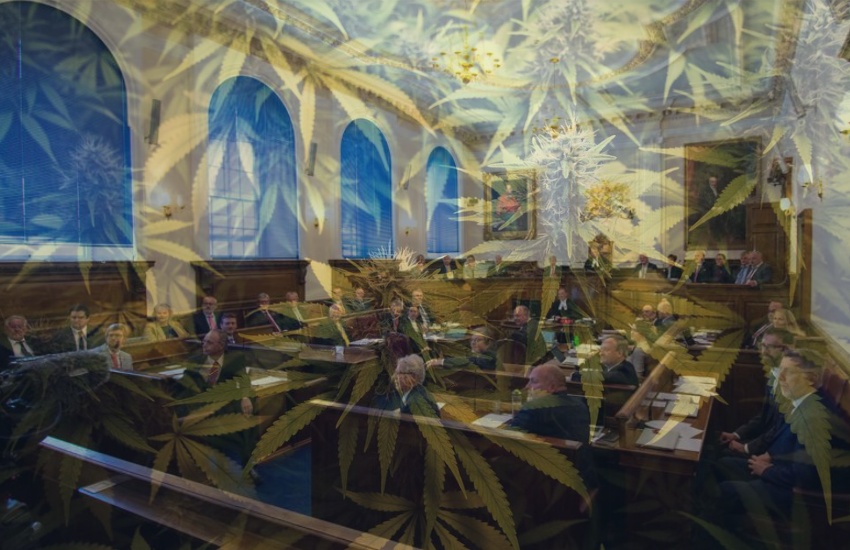
Pictured: States' members backed the proposal to "kick start the process of changing the legal status of cannabis" by 20 votes to 14.
"I agree with Deputy Prow," said Deputy Brouard, pictured top left. "Is this really a priority?
"My personal view is that I think cannabis is kept to the fore by a minority. I do not believe it is the majority of the community that is asking for this change.
"Is reviewing the recreational use of cannabis really your priority? Is that the message you want to send out? You could make real difference to people’s lives but you want to spend your time looking at the recreational use of cannabis. In some sort of other world, maybe, but not in mine.
"Whatever we put Public Health [officials] to, they will do it, and they will do it with vigour and they will do it well. But...after a war, after a pandemic, after Brexit, do you want to spend your time having an important and very professional outfit looking at the use of cannabis?"
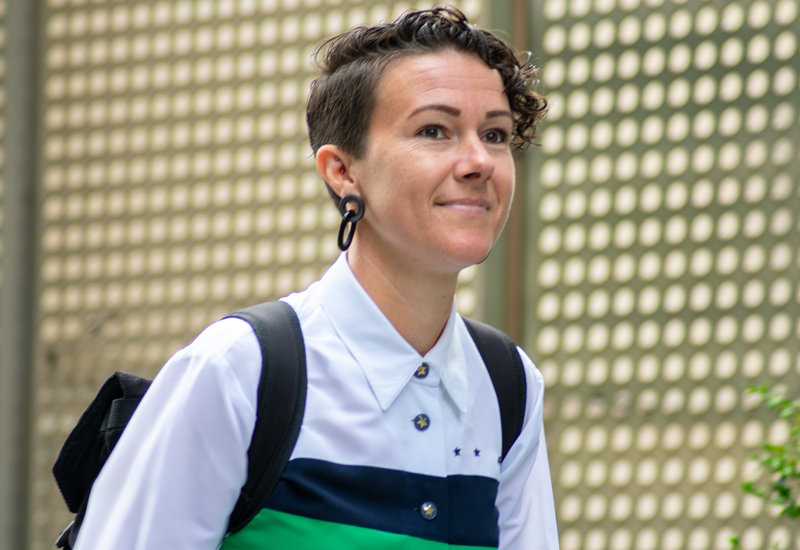
Pictured: Deputy Tina Bury, Vice President of the Committee for Health & Social Care, backed the proposal on cannabis along with the other ordinary members of the Committee against the advice of their President, Deputy Al Brouard.
It was left to Deputy Tina Bury, as the Vice President of the Committee for Health & Social Care, to explain the views of the majority of members of the Committee.
"As far as I’m concerned, the majority who favour this piece of work do not have a collective view on a particular [legal] regime. It’s not a discussion we’ve had. It really is that we’d just like to push this conversation forward," said Deputy Bury.
She said the Committee wanted to look into "a partly or wholly regulated market" in cannabis. "A decriminalised market leaves the product quality, accessibility and financial gains firmly in the hands of criminals and a regulated market allows government and industry to take control of those things," said Deputy Bury.
"While some have suggested that this matter is not important to the community or only to a vocal minority, I beg to differ. The question on our views on cannabis was included in almost every set of questions we received during the run up to the [2020] election and we have received many, many contacts from the public on this subject since our term began.
"I’d like to say to members that this is a conversation that is happening worldwide with several countries having already made a move to a more liberal approach and many more considering doing so.
"Even though we here in Guernsey are small in scale, we shouldn’t be small in mindset. If we want to show ourselves as the mature and internationally respected jurisdiction that we are, then we should be moving with the times and joining the conversation.
"We cannot stick our fingers in our ears, close our eyes and shout la-la-la-la-la any longer. Members can rest assured that that is not going to make it go away."
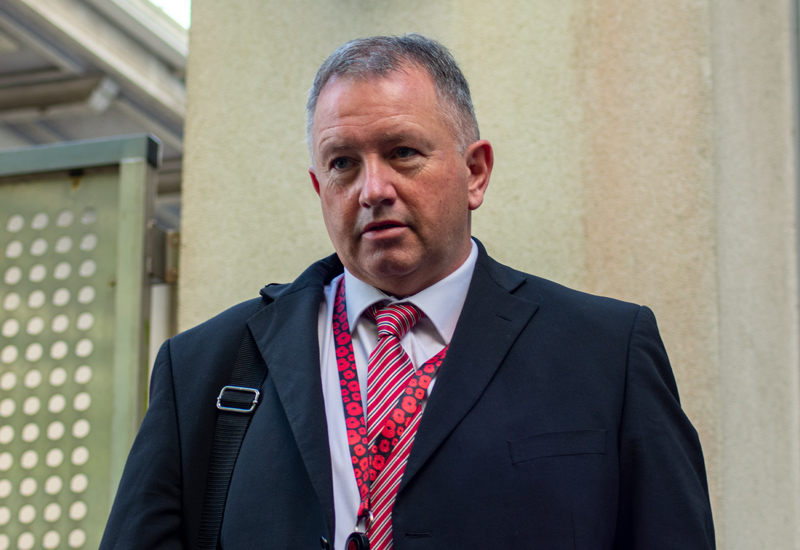
Pictured: No deputy spoke more strongly against reviewing the legal status of cannabis than Deputy Liam McKenna.
Deputy Liam McKenna, who is also a member of the Committee for Home Affairs, said that decriminalising or legalising cannabis would be "a very bad idea".
"I’m certain that [for] most of the population who think that cannabis is fine to use, [it] is because they’re not confronted by it on a daily basis," said Deputy McKenna. "Should cannabis be legalised, the general public will suddenly walk through St Peter Port with a stench of cannabis in the air. Cannabis users will be sat outside a café smoking freely, ruining your lunch.
"My biggest fear is organised crime coming to Guernsey. I hope the States are not so naïve as to think that legislation on cannabis will not attract drug lords from around the UK and further afield. Guernsey will see criminals the likes of which they have never experienced before.
"People speak of cannabis making people mellow, but have we considered what this may look like for young children not properly cared for? Are the States happy to farm out cheap cannabis to lower socio-economic families who can have a further addiction to put upon their children? Whether this risk is something the States want to own – this lifestyle for vulnerable children – I don’t think they do."
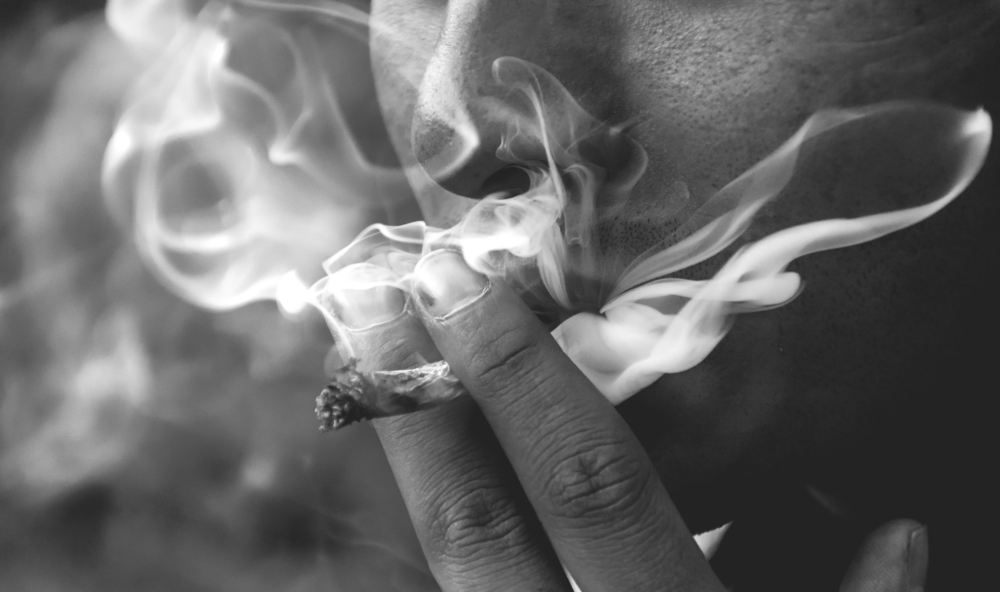
Pictured: Deputies have backed a review of cannabis laws 40 years after the idea was first debated in the States' Assembly.
Responding to the points made by Deputy McKenna, Deputy Andy Cameron said: "The things he talks of are the current situation and the reasons why we need regulation.
"Not supporting [reform] will result in the continuation and deepening of the illegal cannabis market where there are no controls over what toxic substances are being added to cannabis and who it’s being sold to, with the proceeds effectively being taken out of our economy as they are not taxable," said Deputy Cameron.
"That is what will be detrimental to Guernsey - not a well-regulated, transparent and respectable industry that is making positive contributions to the environment, health and economy of Guernsey."
Deputy Carl Meerveld said he was personally opposed to drug use but that the review of the legal status of cannabis was "a conversation which we need to have".
"The fact is that drugs are in our environment and they’re not going away. The regulatory environment has not stopped it," said Deputy Meerveld.
"I’m never, ever going to support the idea of Guernsey becoming a new Amsterdam, but I do have concerns, and I would like to see decriminalisation of small quantities because I also don’t want to see one of my sons caught with a spliff in their pocket and having a criminal record."
Members of the Committee for Home Affairs, who unanimously opposed reviewing decriminalisation or legalisation, said that people were no longer imprisoned if their only offence was possession of personal quantities of cannabis. But Deputy Meerveld said: "It’s not just going to prison. Having a criminal record for a drugs conviction can affect your ability to travel internationally, affect your future employment prospects, university prospects, etc. It can have a life-changing impact."
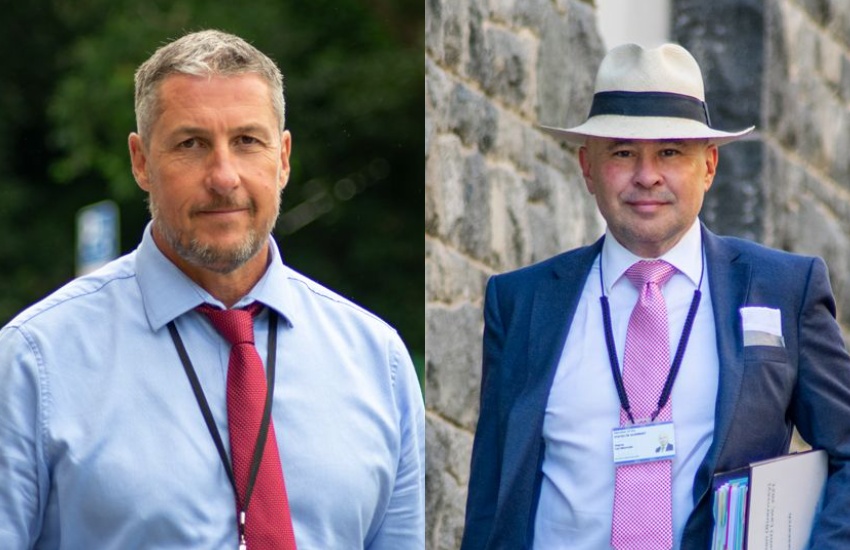
Pictured: Deputy Andy Cameron (left) and Deputy Carl Meerveld (right) both supported a review of cannabis laws.
Deputy Peter Roffey provided an example of Deputy Meerveld's point after saying that Guernsey's "strict regime has made a complete shipwreck of so many lives of people who can’t in any way be described as ‘criminal types'".
"A couple of years ago, I went to see a lady of a certain age in a sheltered housing complex," said Deputy Roffey. "She could have been anybody’s auntie. She was not remotely criminal in nature. She was in a wheelchair because of progressive multiple sclerosis. She had resorted in desperation to self-treating her condition by ordering some cannabis oil online.
"The package was intercepted – so she still hasn’t tried cannabis in her life – but she spent a distressing night in the police cells. Let me stress, she was not sent to prison. But as a result of her conviction, she’s no longer able to visit her adult daughter, - a doctor, I seem to recall - who lives in North America because she has a drugs conviction."
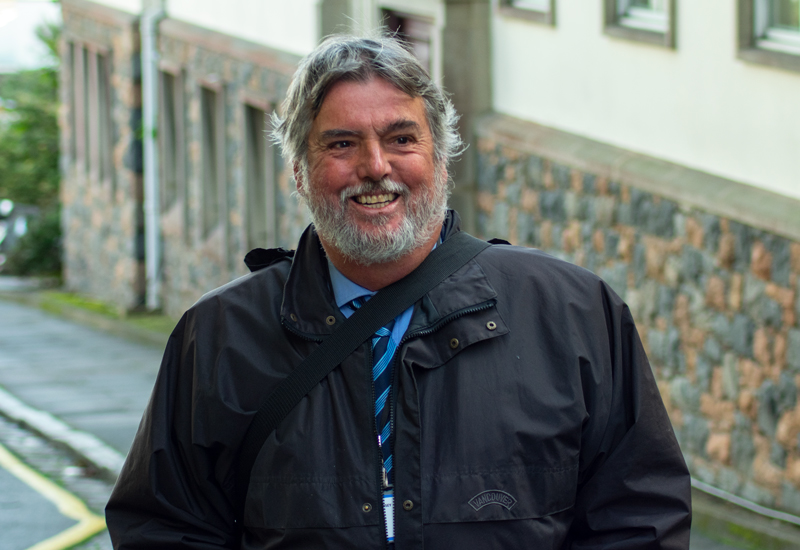
Pictured: Deputy Peter Roffey said that Guernsey's approach to cannabis had done more harm than good for decades.
Deputy Roffey said that the kind of non-penal approach which the Committee for Home Affairs appeared to favour "has limitations - for example, the supply of cannabis would remain completely illegal".
"People may say that’s a good thing, but let’s turn it around the other way. All those personal users who we are suddenly going to treat with compassion...will still have to buy their cannabis from criminal drug pushers and that carries many dangers," said Deputy Roffey.
"No quality control, no certainty over the THC levels of what they’re buying, and because they are buying from an illegal drugs pusher it really opens up the vector of opportunity to access more dangerous drugs. Worse still, the illegal suppliers will still be enjoying a lucrative market in Guernsey, and I don’t want them to. By contrast, legalisation and regulation removes many of those dangers.
"Over the past 50 years, I have seen far more harm than good by Guernsey’s strict regime on illegal drugs. It has done, in my view…almost nothing to reduce drug use in Guernsey. Cannabis is and always has been widely used in the island. Prohibition doesn’t work with widely-used substances. Prohibition can work when it’s a substance that very few people want to use – heroin, for instance…but using prohibition to try to deal with something you don’t particularly like, such as cannabis in Guernsey or alcohol in the United States, is very rarely successful."
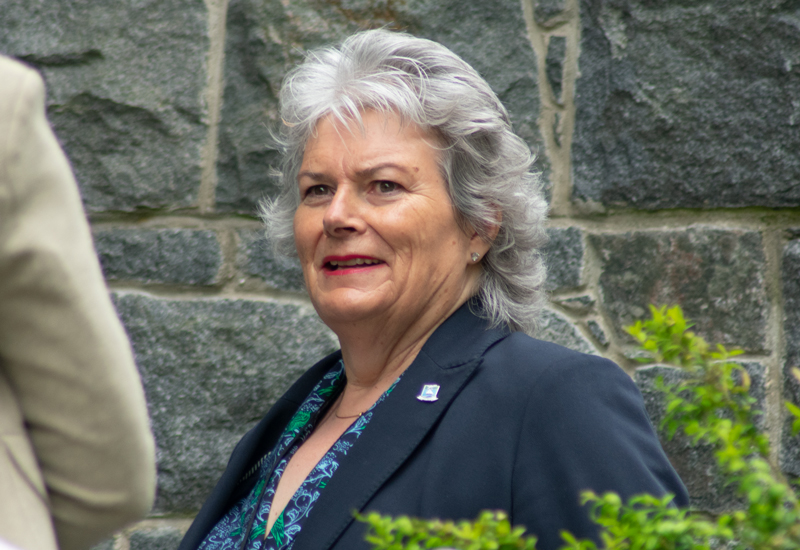
Pictured: Deputy Sue Aldwell warned the Assembly that liberalising the island's approach to cannabis could destroy more young lives.
Deputy Sue Aldwell shared a conversation she had with a voter during the 2020 general election campaign. She said he had moved to Guernsey from Scotland mainly to escape the damage caused to his former community by drugs.
Deputy Aldwell said the voter had told her: "If you are elected and do only one thing in your time as a deputy, make sure you do not legalise drugs. If you allow drugs on this beautiful island, it will destroy it, as it has in every small community outside the cities in Scotland. It sucks the lifeblood out of the community, it turns vibrant communities into wastelands, it takes away the ambition from our young people and it stops their productivity. Jobs are lost, country (sic) lines are formed by gangs and vulnerable children are recruited and exploited – and all those who say it won’t happen, it most certainly will."
Deputy Aldwell added: "He explained with a passion [that] he had come to [the] island because we have zero tolerance on drugs and his family was safe. He no longer wanted to bring up his family in Scotland. He commented what a wonderful place the island is and how we should appreciate how safe this island was from major crime and to count our blessings. He had seen first-hand, as a social worker, families’ lives and children’s lives destroyed working in villages outside Edinburgh."
For (20): Deputies Blin, Burford, Bury, Cameron, de Sausmarez, Fairclough, Gollop, Inder, Kazantseva-Miller, Leadbeater, Matthews, Meerveld, Oliver, Parkinson, Queripel, Roffey, Soulsby and Trott and Alderney Representatives Roberts and Snowdon.
Against (14): Deputies Aldwell, Brouard, De Lisle, Dyke, Ferbrache, Haskins, Helyar, Mahoney, McKenna, Moakes, Murray, Prow, Taylor and Vermeulen.
Absent (5): Deputies Dudley-Owen, Falla, Gabriel, Le Tocq and St Pier.
Cannabis debate and vote set to go ahead as deputies pull amendment
"Smoking a bit of cannabis at home...no different to my dad having a G&T"
Deputies' cannabis arguments are "the biggest crock of nonsense"
Deputies bid to block cannabis vote
Cannabis law review moves closer - and States to debate GP costs
Drugs laws under review - but legalisation is off the agenda
Comments
Comments on this story express the views of the commentator only, not Bailiwick Publishing. We are unable to guarantee the accuracy of any of those comments.